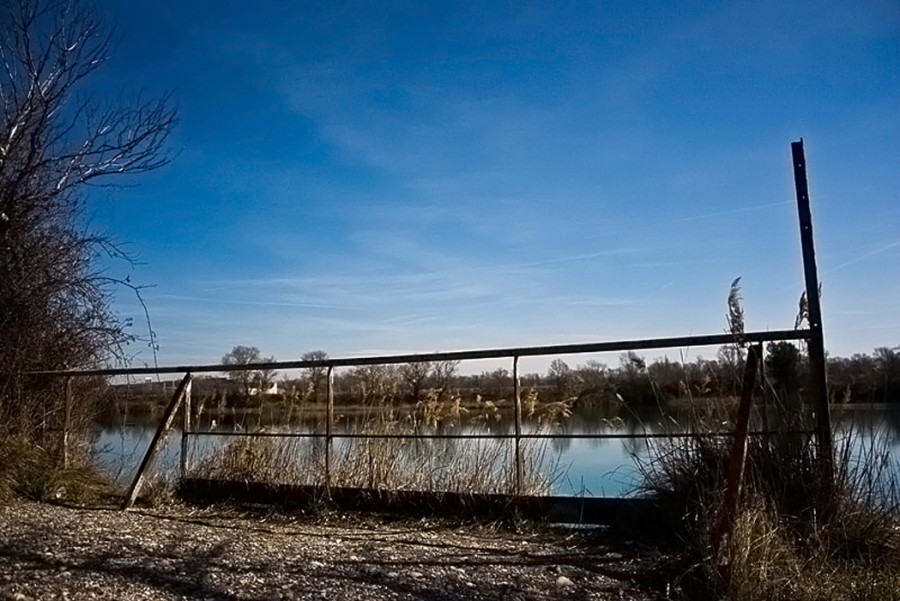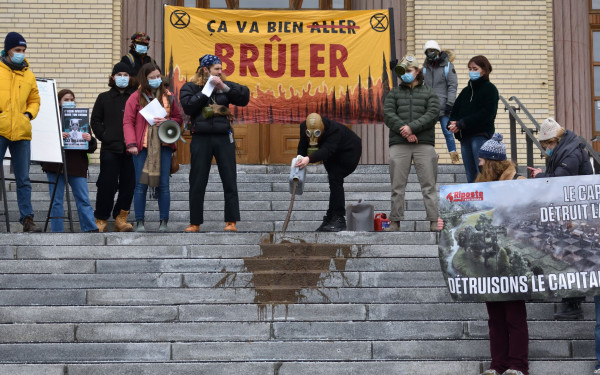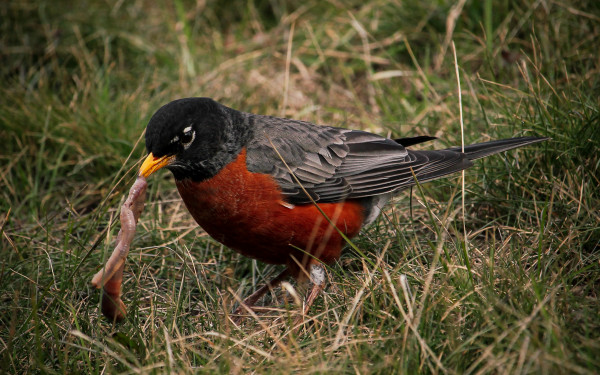‘We Cannot Win This Battle On Our Own’
Algonquins of Barriere Lake Take On Feds, Again
Just three and a half hours north of Parliament Hill is a small village where the Algonquin of Barriere Lake live.
The 59-acre reserve, situated within 10,000 square kilometres of traditional hunting grounds, is a cramped display of dirt roads and shacks. Many of the tattered wooden houses are missing windows and doorknobs, which have been replaced by cardboard and string. With 90 per cent of the 450 residents unemployed and on welfare, hunting and fishing are crucial for survival.
This could explain why the community has been so adamant about protecting their traditional land and way of life in the face of logging companies, hydroelectric dams and, now, the Indian Act.
In a rare move on Aug. 13, then-Minister of Indian and Northern Affairs Chuck Strahl invoked section 74 of the Indian Act to forcibly impose band elections on the community of Barriere Lake. Strahl said the move was necessary to address the leadership void in the community caused by internal divisions.
But Norman Matchewan, a youth spokesperson for the community, told a crowd at the second annual Indigenous Sovereignty Week in Montreal that abolishing their traditional governance structure would do more harm than good.
“Since this Indian Affairs council has been recognized, they have started dealing with forestry companies and signing away parts of our land to be clear-cut without the community’s consent,” he said. “They wanted democracy and accountability, Indian Affairs. And yet the band council they put in place can’t even have a proper community meeting in the community.”
Despite preventing the electoral officer from entering the community by blockading the highway from Ottawa, the Barriere Lake Algonquins could not stop the elections this summer. Polling took place 45 kilometers outside the community and, with only 10 mail-in ballots collected, the federal government declared a new chief and council.
With council consisting of four members, three of whom live off of the reserve, the elected chief Casey Ratt refused the position, saying he did not want to go against the community elders. If another resigns, it will go to a byelection.
“In our customs, it’s the people that select their leaders,” Matchewan said. “To me that’s more democratic than what Indian Affairs is doing. They’re just finding ways to fit their needs, fit their agenda.”
According to Matchewan, that agenda is forestry.
“They’ve imposed this section 74 in order for logging to happen. They don’t want any strong customary leadership in place. They want puppet councils that they can work with to deal with the logging companies to clear-cut our lands.”
Since the early 1990s, Algonquins at Barriere Lake have actively resisted clear-cutting by companies like multinational Abitibi-Bowater on their territory by blockading roads around their reserve.
Such conflict was expected to end after 1991, when the federal and provincial governments signed onto the Trilateral Agreement with the Algonquins. This UN-praised, groundbreaking agreement was an attempt to reconcile continued industrial logging with the environmental and cultural needs of the First Nations community.
To date, neither government has upheld any parts of the agreement, including the deal to share natural resource revenues generated off of the un-ceded Algonquin territory.
In 2006, the Quebec government promised to share $1.5 million annually with the community, but has stalled on implementing this agreement despite recommendations by two former Quebec Cabinet Ministers: Quebec special representative John Ciaccia and Barriere Lake special representative Clifford Lincoln.
“Right now the government of Quebec is making over $100 million a year off the territory and the community doesn’t get anything,” said Matchewan. “We continue to live in poverty in overcrowded homes with no electricity.”
The Algonquins of Barriere Lake are one of the smallest and most impoverished First Nations communities in Canada. Less than half of the homes on a 59-acre reserve are fit to live in, and despite being surrounded by hydroelectric dams, the community remains cut off from the grid.
The entire community runs off one generator, which Matchewan says costs the government millions and often breaks down in the winter.
Central to this animosity over the community’s finances is the Quebec City consulting firm Lemieux Nolet, hired to manage the community’s dire financial situation.
According to Martin Lukacs, a journalist and member of the Montreal-based Barriere Lake Solidarity group, the firm makes $200,000 to $400,000 a year to manage the money the community receives from the government.
“Barriere Lake was already one of the poorest communities in the country, and [now it is] also denied access to any of its own resources because these third party managers get paid […] from the community’s funds,” Lukacs said. “So the community has no access to money.”
Lukacs says that there are no real enforcement measures to ensure that third party managers like Lemieux Nolet actually bring communities out of deficit—a criticism also made by the Auditor General of Canada in 2004.
“The groups’ incomes depend on the community staying in the throes of deficit,” Lukacs said. “It’s self-reinforcing. So what it actually becomes is a blank cheque.”
INAC says it now more closely monitors the performance of third-party managers.
The latest tactic of the federal government, says Lukacs, has been the invocation of section 74 of the Indian Act with the intent to weaken internal governance and, thus, resistance to a Comprehensive Lands Claim Agreement.
This type of agreement is the standard negotiating policy used by the federal government in cases where no treaty is in place. It requires First Nations to extinguish the title to most of their land as a prerequisite for negotiating over rights to resources, land and self-governance.
“Land use is built into their governance systems,” he said. “For that to be destroyed, they’d have a much weaker case in front of the courts in terms of demonstrating their title to the land.”
To demonstrate title, you must be able to prove constant and exclusive use of the land before the assertion of crown sovereignty.
Apart from the ever-mounting legal challenge posed by the Comprehensive Land Claims, the Algonquins of Barriere Lake are concerned with preserving their traditional way of life, which includes their customary government.
“The elders are responsible for residing over our leadership selection […] a process where candidates are selected in a community assembly that’s approved by the people,” said Matchewan. “It has always been important for my community to select its leaders under the customs because it’s a community driven process—not in elections.”
For the Algonquins, the land, language and customary governance system they have held onto for hundreds of years are interdependent.
“My community grew up connected to the land,” said Matchewan. “It means our survival. Our language has survived for centuries through our continued connection to our territory.
“The main focus of the customary chief and council is protecting the land for future use, for the next generation. So they have a place where they can harvest.”
Matchewan said that divisions have emerged in his community over the past two decades due to government interference.
“In 1996 there was a big division,” he said. “INAC was supporting one group over the other. They managed to pull it off, to divide the community, which is a sad thing […] Money gets thrown around to people. It could be money, it could be leadership, power.”
But Lukacs says that this time, the federal government went too far with the use of section 74.
“What they inadvertently did was bring people in the community together,” he said. “No one wanted to see [the] customary system abolished.”
The community plans to take their resistance to Parliament on Dec. 13 with the demand that INAC respect their traditional government and the Trilateral Agreement. They are hoping that citizens from Montreal will join them in support.
“We’re a small community,” said Matchewan. “We cannot win this battle on our own.”
This article originally appeared in Volume 31, Issue 16, published November 30, 2010.







_1_600_375_90_s_c1.jpg)